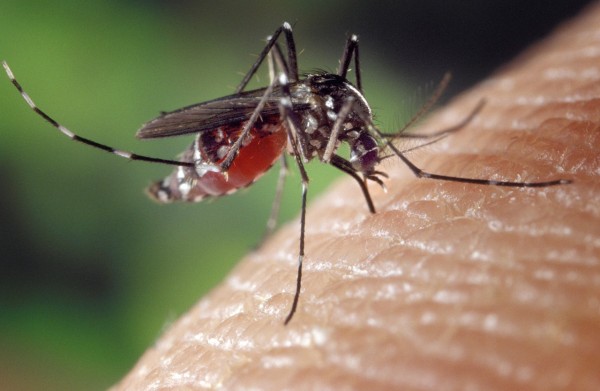Wisconsin Reports 2020's First Death Due to Rare Disease from Mosquito Bite
Wisconsin has reported the first human death this 2020 as a result of a mosquito bite.
According to the Wisconsin Department of Health Services and the Chippewa County Health Department, a woman in her 60s has been infected with the eastern equine encephalitis (EEE.) She has become the second case of infection in the state of Wisconsin after the first confirmed case on Wednesday. She is the first case to result in death.
Interim State Health Officer Stephanie Smiley emphasized the seriousness of this infection. Since mosquitoes are known to be active in Wisconsin, people should continue to take precautions to protect themselves from mosquito bites.
Based on DHS, nine horses in the northwestern part of the state have EEE and another four were detected in Chippewa County.
This disease can spread to people through bites from infected mosquitoes.
Mosquitoes usually acquire the EEE virus by feeding on infected birds and mammals.
Although it is rare, it is potentially fatal and affects people across the ages.
LEARN ABOUT: Parenting skills tied to reduced inflammation in low-income children
What is EEE?
Eastern equine encephalitis (EEE) belongs to the group of arboviruses or arthropod-borne viruses. It is spread by the bite of certain kinds of mosquitoes causing encephalitis or inflammation of the brain.
The incubation period for the Eastern equine encephalitis virus (EEEV) ranges from 4-10 days. It is possible for people who are infected with the EEEV to not develop any symptoms.
The severity of the symptoms varies with age and other host factors. People who have a weaker immune system due to sickness or other factors, as well as adults older than 50 and children younger than 15 have a higher risk of developing a serious infection.
Approximately one-third of patients diagnosed with EEE may die, which usually occurs 2 to 10 days after the onset of symptoms, although it may occur much later. Those who recover may suffer from mild to severe brain damage. There may be personality disorders, seizures, paralysis, and cranial nerve dysfunction. Those who experienced severe brain damage may require long-term care and die shortly within a few years.
EEE Risk Factors
People who spend longer time outdoors are more likely to be bitten by a mosquito. It is recommended to apply an insect repellent containing DEET, lemon or eucalyptus oil, or IR3535 to exposed skin prior to going out.
Consider rescheduling outdoor activities that occur during dusk and dawn, as this is the period of time where mosquitoes are most active.
Choose to wear clothing with more skin coverage to help keep mosquitoes away.
EEE Treatment
There is no approved vaccine or specific treatment for this disease. Suspected patients of EEEV are evaluated by a health care professional and treatment is focused on supportive therapy, including respiratory support, intravenous fluids, and prevention of other infections.
All EEEV disease cases should be promptly reported to local public health authorities. Early detection of the outbreak of this rare disease can help initiate control measures to limit future infections.
READ MORE: Unusual skin cancer linked to chronic allergy from metal orthopedic implant
Sep 07, 2020 07:00 AM EDT






